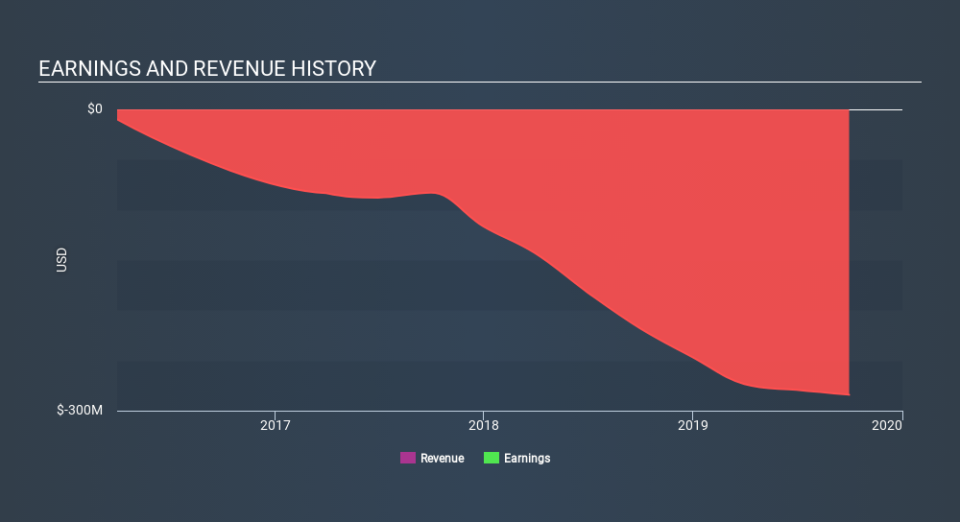Should You Be Concerned About Myovant Sciences Ltd.'s (NYSE:MYOV) Historical Volatility?

Anyone researching Myovant Sciences Ltd. (NYSE:MYOV) might want to consider the historical volatility of the share price. Volatility is considered to be a measure of risk in modern finance theory. Investors may think of volatility as falling into two main categories. The first category is company specific volatility. This can be dealt with by limiting your exposure to any particular stock. The other type, which cannot be diversified away, is the volatility of the entire market. Every stock in the market is exposed to this volatility, which is linked to the fact that stocks prices are correlated in an efficient market.
Some stocks are more sensitive to general market forces than others. Beta can be a useful tool to understand how much a stock is influenced by market risk (volatility). However, Warren Buffett said 'volatility is far from synonymous with risk' in his 2014 letter to investors. So, while useful, beta is not the only metric to consider. To use beta as an investor, you must first understand that the overall market has a beta of one. Any stock with a beta of greater than one is considered more volatile than the market, while those with a beta below one are either less volatile or poorly correlated with the market.
Check out our latest analysis for Myovant Sciences
What does MYOV's beta value mean to investors?
Given that it has a beta of 0.89, we can surmise that the Myovant Sciences share price has not been strongly impacted by broader market volatility (over the last 5 years). If history is a good guide, owning the stock should help ensure that your portfolio is not overly sensitive to market volatility. Beta is worth considering, but it's also important to consider whether Myovant Sciences is growing earnings and revenue. You can take a look for yourself, below.
How does MYOV's size impact its beta?
With a market capitalisation of US$1.7b, Myovant Sciences is a small cap stock. However, it is big enough to catch the attention of professional investors. Small cap stocks ofthen have a higher beta than the overall market. However, small companies can also be strongly impacted by company specific developments, which can move the share price in ways that are unrelated to the broader market. That could explain why this one has a low beta value.
What this means for you:
Since Myovant Sciences is not heavily influenced by market moves, its share price is probably far more dependend on company specific developments. It could pay to take a closer look at metrics such as revenue growth, earnings growth, and debt. In order to fully understand whether MYOV is a good investment for you, we also need to consider important company-specific fundamentals such as Myovant Sciences’s financial health and performance track record. I urge you to continue your research by taking a look at the following:
Future Outlook: What are well-informed industry analysts predicting for MYOV’s future growth? Take a look at our free research report of analyst consensus for MYOV’s outlook.
Financial Health: Are MYOV’s operations financially sustainable? Balance sheets can be hard to analyze, which is why we’ve done it for you. Check out our financial health checks here.
Other High-Performing Stocks: Are there other stocks that provide better prospects with proven track records? Explore our free list of these great stocks here.
If you spot an error that warrants correction, please contact the editor at editorial-team@simplywallst.com. This article by Simply Wall St is general in nature. It does not constitute a recommendation to buy or sell any stock, and does not take account of your objectives, or your financial situation. Simply Wall St has no position in the stocks mentioned.
We aim to bring you long-term focused research analysis driven by fundamental data. Note that our analysis may not factor in the latest price-sensitive company announcements or qualitative material. Thank you for reading.

 Yahoo Finance
Yahoo Finance 
